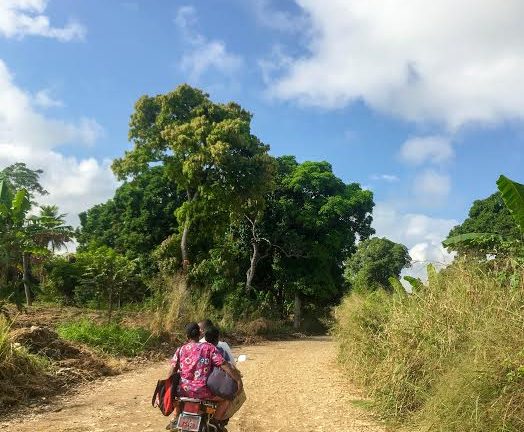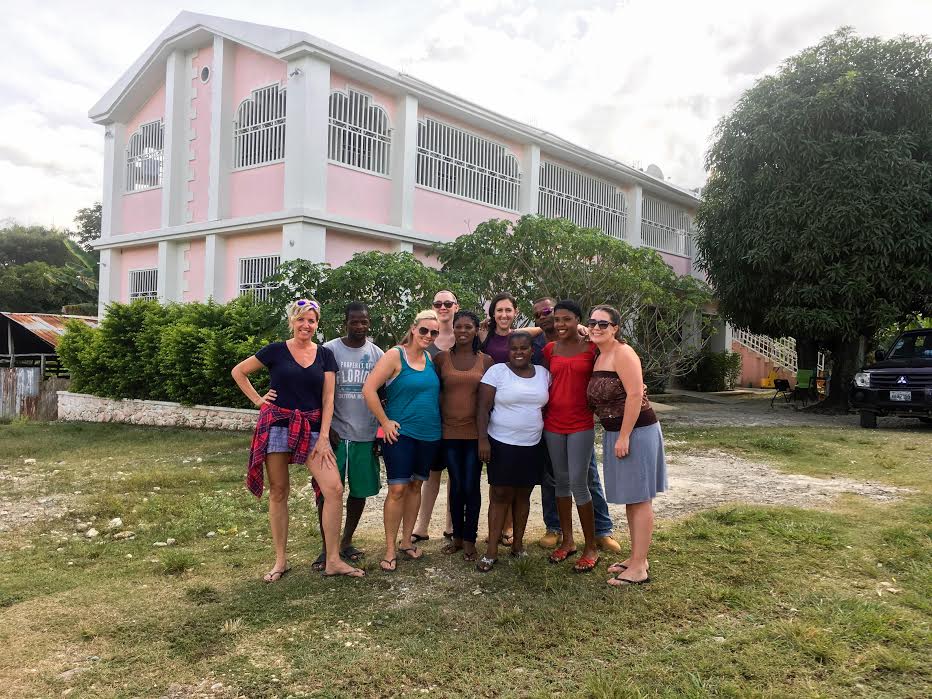
Midwives for Haiti – An Exemplary Organization that Needs Skilled Volunteers
By: Emily Scott, ethical travel enthusiast and Registered Nurse who blogs at Two Dusty Travelers
Midwives for Haiti’s guiding principles (which volunteers are required to read before serving) state their values of genuine partnership, compassion, humility, and stewardship. I loved volunteering with MFH because the experience on the ground absolutely lived up to the lofty words on their website.
Having served on nearly a dozen medical missions over the last decade as a Registered Nurse, I know from experience that many volunteer programs are not as altruistic as they appear. I try to turn a critical eye on every organization I work with, and MFH was a standout for me.e

Photo by: Emily Scott
MFH is a nonprofit organization that trains Haitian nurses to become skilled birth attendants. Haiti is the most dangerous country in the Western Hemisphere to give birth, though the vast majority of these deaths are preventable. Currently there are only enough skilled providers in Haiti to provide full reproductive health care to 10% of the population. MFH's program is changing that. Carefully selected students complete a year-long course to certify as skilled birth attendants who will provide care in hospitals, birth centers, and community programs throughout the country.

That's where volunteers come in. Qualified foreign medical professionals offer their knowledge and skills to the students in MFH's program. Volunteers may teach in the classroom, mentor MFH students as they care for patients in the hospital, or travel with the Mobile Prenatal Clinic to help provide care to women in remote areas.
MFH’s training program inspired me not only because it saves the lives of countless mothers and babies – but also because it empowers local Haitians in the process. It's simple enough to fly a group of American doctors and nurses to a developing country, set up a free clinic, and treat patients for a week. Everybody goes home feeling great about themselves – but what happens to that community after they leave?

MFH addresses the problem at its root, by focusing its energy on fostering skilled Haitian professionals to care for their own communities. And they’re good at it: The MFH-trained midwives I worked with in a remote rural birth center were highly skilled and committed. They kept the ward clean and always prepared for emergencies, treated patients with remarkable compassion, and displayed an expertise about their patients that only locals could achieve.
Of course, I learned as much as I taught. I left Haiti feeling like I had absolutely made a difference, but also that the locals I worked with had made a difference in me.
Why Midwives for Haiti is an example of responsible volunteering:
+ Volunteers must be licensed – no students or unskilled volunteers are allowed to provide medical care with Midwives for Haiti.
+ The mission is sustainable – MFH doesn't bring in foreign volunteers solely to provide medical care themselves. Rather, volunteers are intended to mentor midwifery students. Long after the visitors are gone, their efforts will continue to serve the people of Haiti through the knowledge and skills they left with their students.
+ Hiring of local staff – MFH clearly makes an effort to hire local Haitians into paid positons within the organization, rather than limiting leadership to international staff.
+ Strict photo policy – Absolutely no photography is allowed in the hospital. It would be unprofessional for me to take a photo of a hospitalized patient in America, but somehow those rules are often ignored in developing countries, and very private images end up on social media. MFH's volunteer orientation packet also encourages visitors photographing Haiti in general to “bear in mind how you would like to be photographed, showing a story of accomplishment, or positivity” rather than focusing on poverty and tragedy.
+ Empowerment of local leadership – The nurses who graduate from MFH's program are recognizably proud. It's highly competitive to get in (210 nurses applied this year for just 30 spots), and graduates are respected for providing a skill that is sorely needed in their communities. These women will save countless lives and be able to build reliable professional lives of their own.

Photo by: Emily Scott
The details of Midwives for Haiti's volunteer program:
How are volunteers vetted?
All volunteers must have active medical licenses and credentials. Interested volunteers can fill out the application form on MFH's website and submit their CV and cover letter. They will then complete a phone interview with MFH to make sure the volunteer’s goals match the organization’s needs.
Are unskilled workers allowed to take on tasks they’re not qualified for?
No. Volunteers may only perform procedures that fall within the scope of their medical license. In fact, while I was working with MFH midwives at the government hospital, two volunteers from a different organization were dropped off to “help out” in the wards. Despite having no medical training, they hung around and watched women in labor, even pulling aside curtains that had been closed for privacy so that they could see better.
When I returned to MFH's volunteer house that night, I mentioned the situation to leadership and they were appalled. Even though the volunteers had nothing to do with MFH, they worried about damaging their trusted relationship with the hospital and assured me they would contact the other organization about their volunteers’ behavior. It was just one example of many I saw that illustrated MFH’s commitment to ethical volunteerism.
How much does the program cost?
Volunteer fees are $795 for the first week, and $495 for each additional week. Volunteers pay for their own roundtrip airfare to Haiti.
Is volunteer housing provided?
Yes. Volunteers serve at two sites: A remote birth center in the hills of Cabestor, and the government hospital in Hinche. In Cabestor, volunteers live in shared rooms above the birth center. In Hinche, MFH has a large house in a gated compound for volunteers. Food and clean water is provided at both locations. (The Hinche house comes with a bonus: A sweet resident housecat named Ina May, after the groundbreaking midwife!)
Is transportation to the worksite provided?
Yes. Volunteers take a short motorcycle ride with MFH’s trusted drivers to the hospital and back each day. On days when the team travels hours away to provide mobile prenatal clinics to remote villages, volunteers travel in MFH’s 4×4 vehicles.

Photo by: Emily Scott
Is this the right volunteering opportunity for me?
Only if you have the specific skills MFH is looking for: Certified Nurse Midwives (CNMs), Certified Professional Midwives (CPMs), Licensed Midwives (LMs), OB/GYN physicians and nurses, and Labor/Delivery Nurses. Students are not encouraged to apply since they do not have a medical license under which to legally practice.
You should also be comfortable with teaching and mentorship. Since your role is to act as a clinical instructor for Haitian midwifery students, it's important to be able to teach clearly and simply, and get creative with your methods. Experience working in limited-resource settings is a plus, and flexibility is a must!
If you meet these requirements, I highly recommend volunteering your time with Midwives for Haiti. Nearly half of their international volunteers return to serve with them again, and I look forward to counting myself among that number!
